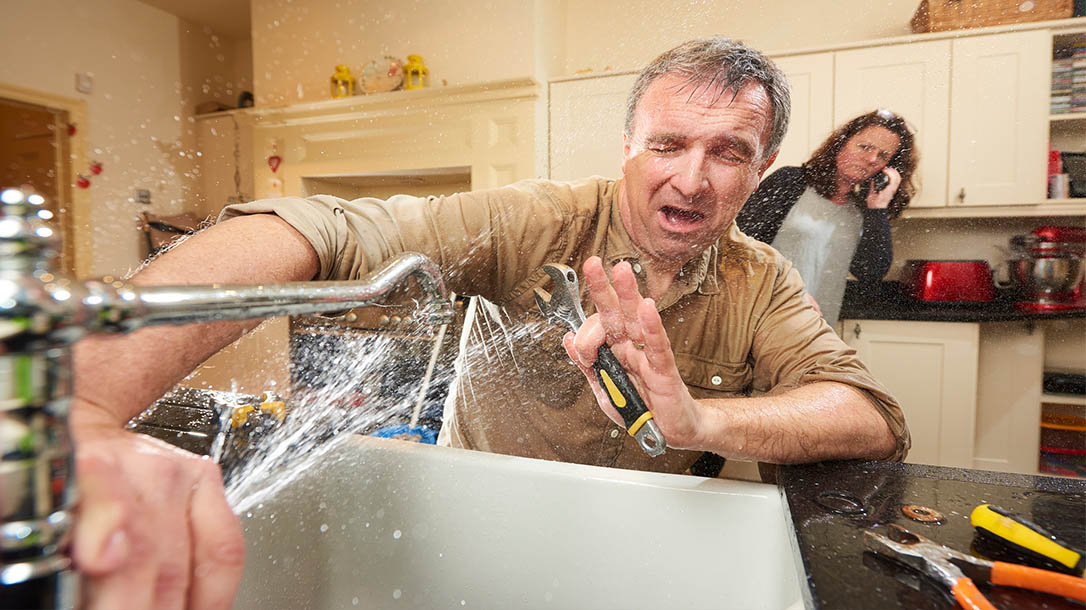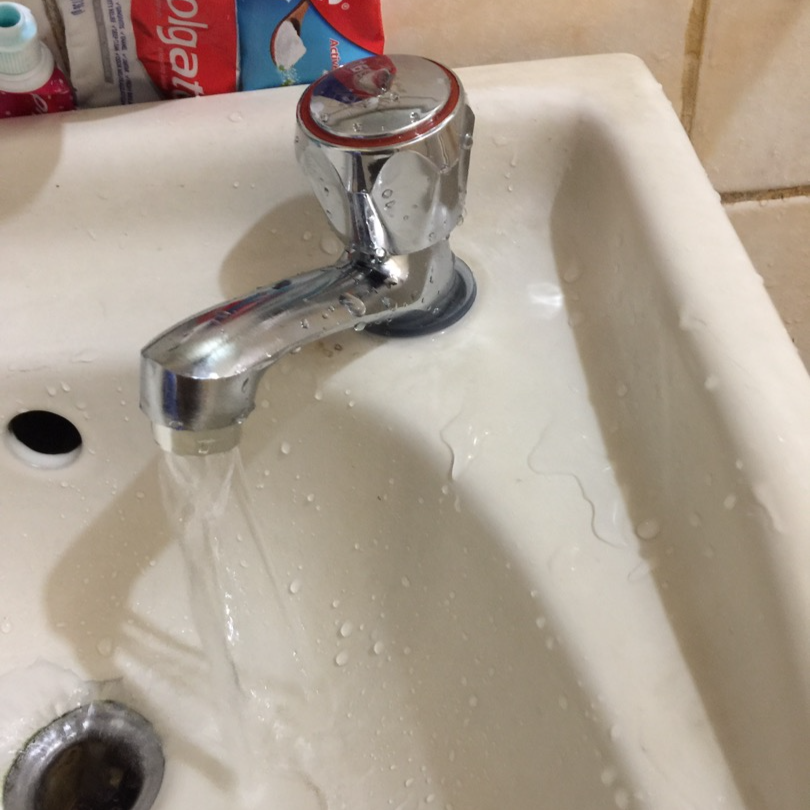Are you trying to locate know-how around Why Are My Faucets Dripping (And Can I Fix It Myself)??

Dripping faucets could feel like a minor hassle, yet their influence exceeds simply the inconvenience of the sound. From wasting water to sustaining unnecessary monetary costs and health and wellness risks, disregarding a dripping tap can cause numerous repercussions. In this short article, we'll look into why it's critical to resolve this common house issue quickly and successfully.
Waste of Water
Environmental Influence
Dripping faucets contribute substantially to water wastefulness. According to the Environmental Protection Agency (EPA), a solitary tap trickling at one drip per secondly can lose greater than 3,000 gallons of water each year. This not just stress water resources but also affects ecosystems and wild animals based on them.
Financial Expenses
Enhanced Water Bills
Past the ecological impact, dripping taps can blow up water costs significantly. The built up wastage over time converts right into higher utility costs, which could have been avoided with prompt repair services.
Prospective Home Damage
Moreover, prolonged trickling can result in damage to fixtures and surfaces bordering the faucet. Water buildup can trigger staining, deterioration, and even architectural problems if left unattended, causing additional repair service expenses.
Health Worries
Mold and Mold Growth
The consistent existence of dampness from a leaking tap creates an excellent atmosphere for mold and mildew and mildew development. These fungi not only endanger indoor air top quality however additionally pose health and wellness risks, especially for people with respiratory problems or allergies.
Waterborne Illness
Stationary water in dripping faucets can come to be a breeding ground for germs and various other pathogens, boosting the threat of waterborne diseases. Pollutants such as Legionella microorganisms thrive in stagnant water, possibly leading to major health problems when consumed or breathed in.
DIY vs. Expert Repair service
Pros and Cons of DIY Repair Service
While some might try to repair a leaking tap themselves, do it yourself repairs come with their own set of obstacles. Without correct knowledge and tools, DIY attempts can intensify the problem or lead to incomplete repair work, extending the issue.
Advantages of Hiring an Expert Plumber
Hiring a professional plumber makes sure that the underlying reason for the leaking faucet is dealt with properly. Plumbing technicians possess the competence and equipment to identify and fix faucet problems effectively, conserving time and reducing the threat of further damages.
Step-by-Step Overview to Dealing With a Dripping Faucet
Tools Required
Prior to trying to deal with a trickling faucet, collect the needed tools, including a flexible wrench, screwdrivers, replacement parts (such as washers or cartridges), and plumber's tape.
Usual Tap Issues and Their Solutions
Determine the kind of faucet and the details concern triggering the drip. Typical problems consist of worn-out washing machines, rusty valve seats, or faulty O-rings. Describe maker directions or online tutorials for detailed assistance on repairs.
Preventive Measures
Regular Upkeep Tips
To avoid dripping taps, carry out routine upkeep such as cleaning aerators, evaluating for leakages, and replacing damaged parts quickly. Additionally, take into consideration setting up water-saving tools or upgrading to more reliable fixtures.
Relevance of Prompt Repair Works
Addressing leaking taps as soon as they're observed prevents more water wastage and prospective damage, eventually conserving both water and money in the future.
Impact on Property Worth
Assumption of Well-Maintained Residential Or Commercial Property
Keeping a home in good condition, consisting of addressing maintenance concerns like trickling faucets, improves its regarded value and value among possible customers or renters.
Influence on Resale Worth
Characteristics with well-kept plumbing components, consisting of taps, command higher resale values in the real estate market. Dealing with leaking taps can add to a favorable impression during home examinations and arrangements.
Ecological Responsibility
Individual Contribution to Preservation
Taking responsibility for repairing leaking faucets lines up with wider efforts toward water conservation and environmental sustainability. Every individual's actions collectively make a substantial effect on preserving valuable resources.
Lasting Living Practices
By prioritizing timely repair work and adopting water-saving behaviors, people add to lasting living practices that benefit both present and future generations.
Conclusion
Addressing a dripping tap surpasses mere benefit; it's an essential step towards conserving water, minimizing financial costs, and safeguarding health and residential property. Whether with DIY repairs or professional aid, doing something about it to take care of leaking faucets is a tiny yet impactful method to promote liable stewardship of sources and contribute to a much healthier, a lot more sustainable future.
How to Fix a Leaky Faucet: Step-by-Step Repair Guide
A leaky faucet may seem like a simple annoyance, but if it's not fixed promptly, that leak could cost hundreds to potentially thousands. From water damage to mold, mildew, and high water bills, even a tiny leak can be catastrophic if left unattended. Damage like this can even affect the overall value of your home, so it's important to take the right approach for leaky faucet repair. You may need the help of a plumber in some cases, but we've got a few tips you can try on how to fix a leaky faucet before calling the pros.
Four Faucet Types
When you're learning how to fix a leaky faucet, the first step is knowing what kind of faucet you're working with! There are four common types.
Cartridge Faucets
Cartridge faucets come in one- or two-handled varieties. In one-handled cartridge faucets, hot and cold water combines in a single cartridge. In the two-handled versions, hot and cold water are controlled separately and mixed in the faucet.
Ball Faucets
Ball faucets have a single lever you push up and down to adjust the pressure and rotate to change the temperature. A slotted metal ball controls the amount of water allowed into the spout.
Compression Washer Faucets
They're the oldest type of faucet, but they're still used in many homes — especially older ones. Compression faucets have two separate handles that, when turned, raise or lower the washer that seals a water valve. This valve stops water from flowing through the faucet when it is turned off.
Disc Faucets
Disc faucets rarely need to be repaired due to their maintenance-free design. The water flow is controlled by two discs — the upper one raises and lowers against a fixed lower disc, creating a watertight seal. If your disc faucet starts leaking, you may need to replace the seals or clean residue buildup from the inlets.
Fixing a Leaky Faucet
Step 1: Turn Off the Water
Whether you're learning how to fix a leaky bathtub faucet or how to fix a leaky kitchen faucet, always turn off the water supply to your working area when you're fixing a leak. The last thing you want is a flood added to your list of things to fix.
Look for the shutoff valves below your sink or around the tub and turn them clockwise to stop the water flow. If your faucet doesn't have shutoff valves, you may need to turn off the water for the whole house. Check to make sure it's off by turning the faucet on. If nothing comes out, you're ready to start the repair.
Step 2: Take Apart the Faucet
How you disassemble your faucet depends on the type of fixture you have. You can use a flathead screwdriver to remove the caps on top of the handle or handles for cartridge and compression faucets. Inside, you should see handle screws. Unscrew these with a screwdriver to remove the handle.
Disc- and ball-style faucets will typically have an inlet screw near the handle, and removing that will reveal the interior of the faucet.
Detach the Valve Stem
For cartridge- and compression-style faucets, you'll see the inner valve stem or cartridge once you remove the faucet handles. If you have a compression faucet, unscrew the brass valve stem. If you have a cartridge faucet, pull out the cartridge. If your cartridge has been in place for a while, it may require some tools or extra force to remove it due to mineral deposits.
Examine and Replace Parts
Once you've removed the parts, check them out to confirm what needs to be replaced. You may see corroded rubber washers, O-rings, stems, or cartridges. On a ball-style faucet, check the seats and springs for damage.
If you need to repair a leaky disc faucet, check the inlet and seals on the lower disc.
Once you determine what parts must be replaced, visit your local hardware store. Bring the damaged parts with you to ensure you can purchase the correct components to replace them.
Clean Valves and Faucet Cavity
If you've removed a stem or cartridge, you may notice mineral buildup in the faucet's threads. Use white vinegar to clean the valve seat by soaking it for a few minutes, then scrub it away with a soft toothbrush and rinse with warm water. You can also clean the interior of the faucet in the same way.
Reassemble the Faucet
Once your faucet is cleaned and the required parts have been replaced, it's time to reassemble it. Put the pieces back together and slowly turn the water supply back on. Doing this slowly is crucial because too much initial water pressure can damage the new hardware you've just installed.
https://homewarranty.firstam.com/blog/how-to-fix-leaky-faucet

Do you like reading up on Water Dripping from Faucet: Why and How to Fix? Put a review down the page. We will be happy to see your opinion about this posting. We are looking forward to see you back again in the future. Sharing is nice. Helping others is fun. I appreciate your readership.
Comments on “Why It's Essential to Mend a Malfunctioning Faucet”